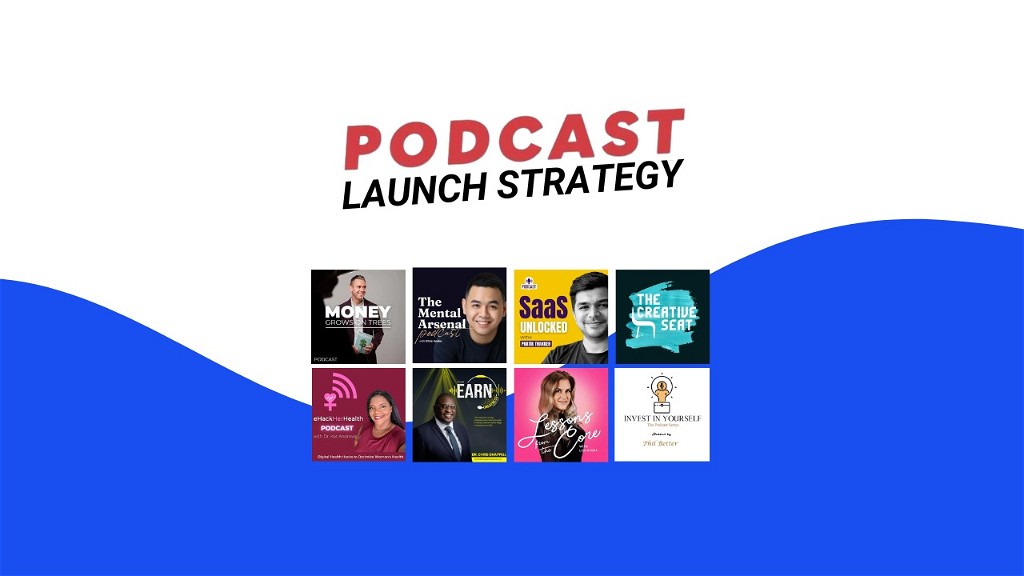When choosing a podcast hosting platform, focus on these essentials:
- Pricing & Storage: Compare plans based on your budget and content needs. Look for options like unlimited storage or scalable pricing.
- Key Features: Prioritize analytics, distribution to major platforms, monetization tools, and ease of use.
- User-Friendliness: Ensure the platform is simple to navigate and compatible with your current tools.
- Growth Potential: Choose a platform that supports your podcast's future expansion.
- Support: Look for responsive customer service, tutorials, and active user communities.
Quick Comparison Table
| Platform | Storage | Bandwidth | Starting Price | Best For |
|---|---|---|---|---|
| Podbean | Unlimited* | Unlimited* | $9/month | Beginners & Growth |
| Libsyn | 50MB-1.5GB | Unmetered | $5/month | Detailed Analytics |
| Spreaker | 100-1500 hrs | 50,000 plays/month | $8/month | Monetization Features |
| Castos | Unlimited* | Unlimited* | Varies by plan | Advanced Podcasters |
*Fair usage policies may apply.
Start by identifying your needs - budget, features, and growth goals - and match them with the right platform.
What to Look for in a Podcast Hosting Platform
Pricing and Subscription Options
Podcast hosting platforms often use tiered pricing plans, offering different levels of storage, bandwidth, and features. When comparing options, think about:
- Whether monthly or annual billing works better for your budget (annual plans often come with discounts)
- How much storage and bandwidth you'll need
- The number of shows you plan to host
- Access to extra features like advanced analytics or monetization tools
Features That Matter
Certain features can greatly influence the success of your podcast. Focus on these key aspects when choosing a platform:
| Feature | Why It Matters |
|---|---|
| Analytics | Understand your audience and measure performance |
| Distribution | Automatically share episodes across major platforms |
| Monetization Tools | Add sponsorships or ads to generate income |
| Storage Options | Keep your episodes organized and easily accessible |
User-Friendliness and Compatibility
Your hosting platform should make podcasting easier, not harder. Look for:
- Simple navigation and tools for managing episodes
- Compatibility with tools or websites you already use
- Reliable customer support and helpful tutorials or guides
"The platform you choose should grow with your podcast", says Podcast Launch Strategy. "Think about your current needs and where you want your show to be in the future."
For seasoned podcasters, some platforms include advanced features like private podcasting or team collaboration tools [1][3]. While these may cost extra, they can provide more flexibility and control as your podcast expands.
Once you’ve pinpointed the features and ease of use that fit your needs, you’re ready to start comparing platforms to find the best match.
How to Choose The Right Podcast Hosting Platform
Comparing Podcast Hosting Platforms
Choosing the right podcast hosting platform can have a big impact on how well your podcast performs. Below, we break down key differences to help you make an informed choice.
Storage and Bandwidth Options
The storage and bandwidth a platform offers play a crucial role in determining how much content you can upload and how many listeners you can serve. Here's a quick comparison:
| Platform | Storage | Bandwidth | Starting Price |
|---|---|---|---|
| Podbean | Unlimited* | Unlimited* | $9/month |
| Libsyn | 50MB-1.5GB | Unmetered | $5/month |
| Spreaker | 100-1500 hours | 50,000 plays/month | $8/month |
| Castos | Unlimited* | Unlimited* | Varies by plan |
*Keep in mind that "unlimited" plans often come with fair usage policies.
Analytics and Audience Insights
Understanding your audience is key to growing your podcast. Libsyn, for example, offers detailed analytics that include:
- Geographic data showing where your listeners are located.
- Metrics on how each episode performs.
- Download statistics to track listener engagement.
- Insights into devices and platforms your audience uses.
These tools can help you refine your content and attract sponsors more effectively [2][3].
Monetization Features
If monetizing your podcast is a priority, some platforms stand out with their built-in tools:
Spreaker provides a range of revenue options, including:
- Automated ad management to simplify ad placements.
- Tools to connect with sponsors.
- Revenue opportunities through live streaming.
Acast focuses on boosting earnings with features like:
- An integrated ad marketplace to connect you with advertisers.
- Tools for offering premium content to subscribers.
- Sponsorship matching to pair you with relevant brands.
These features make it easier to generate income without compromising the quality of your podcast [1][3].
With these details in mind, the next step is figuring out which platform aligns best with your podcast's goals and growth plans.
sbb-itb-cdb7710
Choosing a Platform Based on Your Podcast Goals
Picking the right hosting platform is a big deal for your podcast's success. It should meet your current needs while also supporting your plans for growth down the line.
Planning for Growth
As your podcast grows, you'll need a platform that can handle the extra demands without blowing your budget. Some platforms are perfect for beginners with basic plans, while others offer options that scale as your audience and storage needs increase. For instance, Transistor provides unlimited hosting and detailed analytics, making it a great choice for podcasts aiming to grow.
Here’s a quick breakdown of costs and platforms for different growth stages:
| Growth Stage | Monthly Downloads | Recommended Platform | Typical Cost |
|---|---|---|---|
| Starting Out | 0-5,000 | Podbean | $9/month |
| Growing | 5,000-20,000 | Transistor | $19/month |
| Established | 20,000+ | Castos | Custom pricing |
Beyond scalability, having access to strong support and a helpful community becomes just as important as your podcast gains traction.
Support and Community Resources
Good support and an active community can make a huge difference in your podcasting journey. Look for platforms that offer responsive technical help, clear documentation, and opportunities to connect with other podcasters. Platforms like Buzzsprout and Podbean are known for their excellent resources.
Here are some key support features to look out for:
| Support Feature | Why It Matters |
|---|---|
| 24/7 Technical Support | Keeps your podcast running smoothly |
| Video Tutorials | Helps you learn platform tools |
| Community Forums | Lets you connect with peers |
| Expert Guidance | Offers professional advice |
With podcast audiences expected to surpass 500 million by 2024 [1], selecting a platform with strong features and reliable support ensures your podcast can grow and succeed alongside your audience.
Conclusion: Tips for Making the Right Choice
Choosing the right podcast hosting platform means weighing a few key factors that can shape your podcasting experience. To make the best decision, focus on the following points.
Storage and Pricing
Match the platform's pricing plans to how often you’ll produce content and your budget. Some platforms offer unlimited storage at affordable rates, while others cater to beginners with limited upload hours. Think about how much content you’ll create now and in the future to find the right fit.
Features and Analytics
Pick a platform that offers strong analytics tools to help you understand your audience and improve your content. Look for features that align with your goals, such as distribution tools, audience insights, and monetization options.
| Feature Category | Basic Needs | Advanced Needs |
|---|---|---|
| Storage | 3-5 hours per month | Unlimited storage |
| Analytics | Basic download numbers | In-depth audience data |
| Distribution | Access to major directories | Custom RSS feeds, multiple shows |
| Support | Email support | 24/7 technical help |
Compatibility and Scalability
Check if the platform works well with your existing tools and whether it supports features like video hosting if needed. For WordPress users, some platforms offer direct integration, making it easier to manage your content. Also, ensure the platform can grow with you as your audience expands.
Customer Support
Reliable customer support is essential for a hassle-free experience. Look for platforms with detailed guides, active forums, and responsive technical assistance to help you navigate any issues.
FAQs
How to pick a podcast host?
Choosing the right podcast hosting platform depends on your specific needs and goals. Here's a quick guide to help you make an informed decision.
Beginners vs. Professionals
If you're just starting out, free platforms like Spotify for Podcasters are a great entry point. For those seeking advanced features, platforms like Transistor or Castos, starting at $19/month, are better suited.
| User Type | Recommended Platforms | Starting Price | Key Features |
|---|---|---|---|
| Hobbyist | Buzzsprout, Podbean | Free - $9/month | Basic analytics, limited storage |
| Professional | Transistor, Libsyn | $19/month | Advanced analytics, unlimited storage |
| Enterprise | Simplecast, Castos | $15/month | Multiple shows, team features |
Storage and Analytics
For frequent podcasters, unlimited storage options like Podbean and Transistor are ideal. If detailed audience insights are a priority, Libsyn and Simplecast offer robust analytics tools [3][4].
"Experts suggest aligning platform features, pricing, and support with your podcast's needs", says Podcast Launch Strategy [2][4].
Monetization Options
Platforms such as Podbean and Spreaker provide tools for monetization, which we've covered earlier [1][2].
If you ever need to switch platforms, migration is simple. Services like Buzzsprout and Podbean include transfer tools to make the process seamless [2][3].




